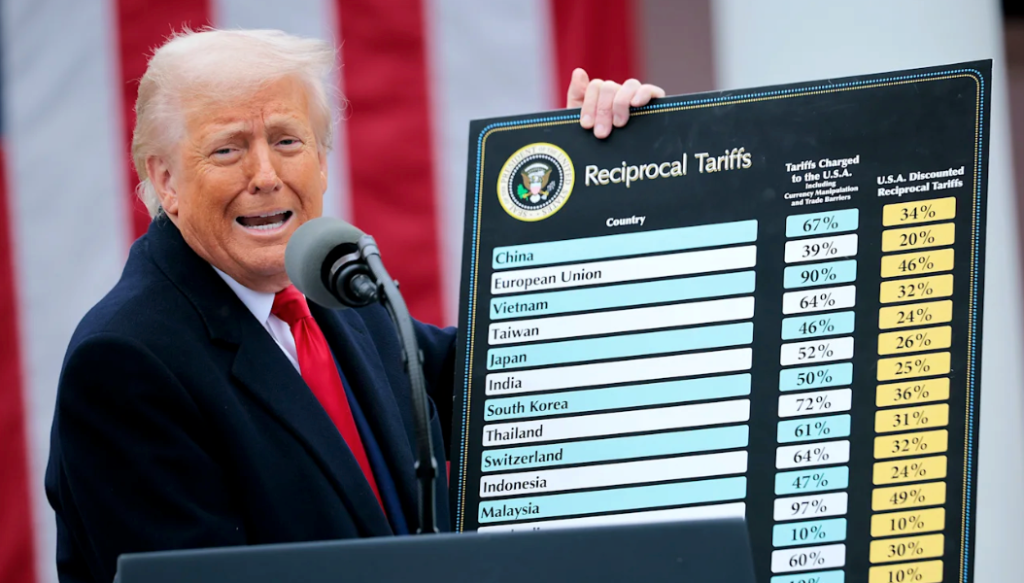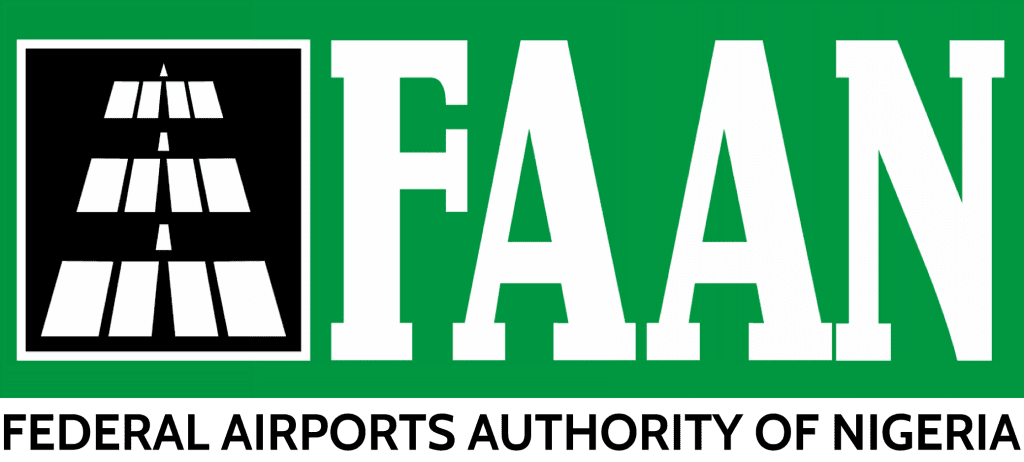In a significant development that underscores growing global trade tensions, the Federal Government of Nigeria has acknowledged the imposition of a 14% tariff on Nigerian exports by the United States. While the decision has the potential to disrupt several export-driven sectors of the Nigerian economy—particularly non-oil products previously protected under the African Growth and Opportunity Act (AGOA)—the government has expressed its commitment to minimizing adverse effects while accelerating efforts toward export diversification and economic resilience.
The announcement came through a detailed statement issued by the Minister of Industry, Trade, and Investment, Dr. Jumoke Oduwole, on Sunday. The statement provided critical insights into the government’s position, its strategic response, and the broader implications of the U.S. move, which forms part of a wider set of global trade realignments under the Trump administration’s “Liberation Day” policy.
Tariff Breakdown: New Barriers for Nigerian Exports
The 14% U.S. tariff, described by American officials as “concessionary,” targets Nigerian exports under the premise that Nigeria maintains a trade surplus with the United States. According to President Donald Trump’s trade doctrine, such a surplus would normally warrant a 28% levy; however, Nigeria was granted a reduced rate, ostensibly in recognition of its developing economy and strategic bilateral ties.
Despite this concession, the policy shift carries serious implications for Nigeria’s export profile. In particular, it may severely impact the country’s growing non-oil export sectors, which include agro-processed goods, fertilizers, urea, lead, and niche manufacturing products. Many of these products had benefited from duty-free access to the U.S. market under AGOA—an arrangement designed to boost African exports and economic development.
“For businesses in the non-oil sector, these measures present destabilizing challenges to price competitiveness and market access, especially in emerging and value-added sectors vital to our diversification agenda,” the Ministry warned.
Small and medium-sized enterprises (SMEs), many of which built their growth strategies around the AGOA framework, now face rising operational costs, disrupted logistics, and unpredictable buyer commitments.
Nigeria’s Export Composition: Heavy Reliance on Oil
Currently, Nigeria’s exports to the United States average between $5 billion and $6 billion annually. Crude oil and other mineral fuels make up over 90% of these exports, highlighting a persistent overreliance on hydrocarbons as the backbone of the country’s trade earnings. Non-oil exports, by contrast, contribute less than 5% of the total.
This imbalance has long been recognized by policymakers and economists as a structural weakness, particularly given Nigeria’s vulnerability to global oil price volatility. The new U.S. tariffs, while not immediately threatening the oil segment, could become a catalyst for meaningful policy shifts that have long been overdue.
According to Dr. Oduwole, “We are approaching this moment with pragmatism and purpose—turning global trade challenges into opportunities to grow our non-oil export footprint and build a more resilient economy.”
Policy Responses: From Words to Action
To cushion the impact of the new tariffs and support Nigerian exporters, the federal government outlined several strategic initiatives, including:
-
Exploring Alternative Export Markets: By seeking diversified trade relationships outside of the United States, the government aims to reduce overdependence on any single partner. Emerging markets in Asia, the Middle East, and other African nations are being targeted for expanded Nigerian export access.
-
Improving Product Standards and Traceability: In anticipation of tougher scrutiny abroad, efforts are underway to strengthen regulatory frameworks that ensure the quality, safety, and traceability of Nigerian goods, particularly in agro-processing and manufacturing.
-
Enhancing Trade Diplomacy: The government emphasized its commitment to robust engagement with international partners, including the U.S. and global trade bodies like the World Trade Organization (WTO), to seek more favorable trade terms and mitigate adverse policy outcomes.
Engagement with the U.S. and WTO
The Nigerian government reaffirmed its diplomatic posture by characterizing the United States as a “valued trade and investment partner.” However, it also stressed the need for ongoing consultation to navigate the complexities introduced by the new tariffs.
Dr. Oduwole disclosed that Nigeria remains in close discussions with U.S. trade representatives, following a high-level meeting with the U.S. Ambassador on March 26, 2025. These talks are also being supported by Nigeria’s ongoing engagement with the WTO to ensure that the country’s interests are protected under international trade law.
AfCFTA: A Strategic Pivot Toward Continental Trade
One of the government’s most significant responses to the tariff shock is a renewed focus on leveraging the African Continental Free Trade Area (AfCFTA). By accelerating the implementation of AfCFTA provisions, Nigeria aims to reduce its reliance on Western markets and instead stimulate intra-African trade.
The government is also promoting the adoption of the Pan-African Payment and Settlement System (PAPSS), an initiative designed to simplify and streamline cross-border payments among African countries. This would allow Nigerian exporters to receive payments in local currencies, reducing reliance on the U.S. dollar and strengthening regional trade resilience.
Background: “Liberation Day” and Global Trade Fallout
The backdrop to this latest development lies in a sweeping trade policy initiative by the Trump administration, branded “Liberation Day.” Under this directive, the United States has imposed tariffs across a wide range of trading partners, citing trade imbalances, national security concerns, and protectionist economic principles.
The announcement triggered volatility in global markets. In response, several countries—most notably China—retaliated with tariffs of their own. Beijing’s 34% tariff on U.S. imports marked a significant escalation in trade tensions and raised fears of a global economic slowdown reminiscent of the 2020 COVID-19 recession.
For Nigeria, the implications of a 14% tariff are complex. While crude oil—its dominant export to the U.S.—is not currently the target of tariff measures, any decline in global oil prices caused by slowing demand could significantly impact Nigeria’s foreign earnings.
With the 2025 national budget based on an oil price benchmark of $75 per barrel and an output target of 1.8 million barrels per day, sustained downward pressure on prices could widen the fiscal deficit, strain reserves, and intensify currency volatility.
Looking Ahead: What’s Next for Nigeria’s Trade Strategy?
The coming months will likely prove decisive for Nigeria’s trade and economic policy. While the current administration has shown a willingness to adapt and respond, several key challenges remain:
-
Will Nigeria secure tariff exemptions or trade concessions through diplomacy?
Much will depend on how Nigeria positions itself in bilateral and multilateral forums. -
Can non-oil sectors scale up production and competitiveness quickly enough?
Without robust infrastructure, financing, and policy support, this transformation may be delayed. -
Will global oil prices stabilize or fall further?
Nigeria’s ability to weather external shocks still hinges on global energy market trends.
Still, there is cautious optimism that the current crisis could be the nudge Nigeria needs to wean itself off oil dependency. If properly managed, the trade turbulence could serve as a launchpad for a more balanced, diversified, and resilient Nigerian economy.













